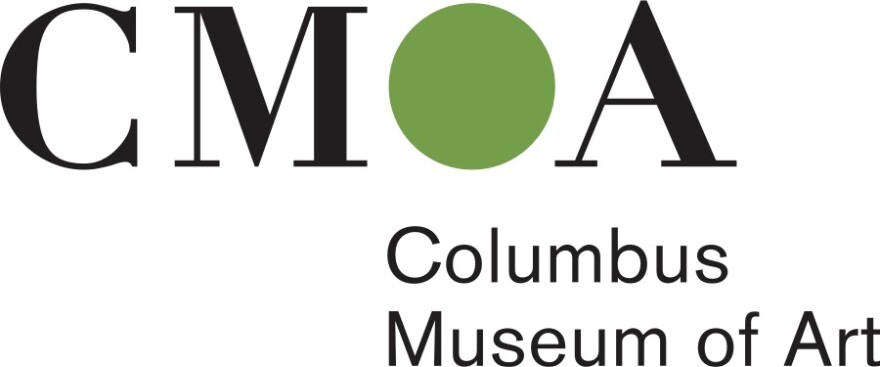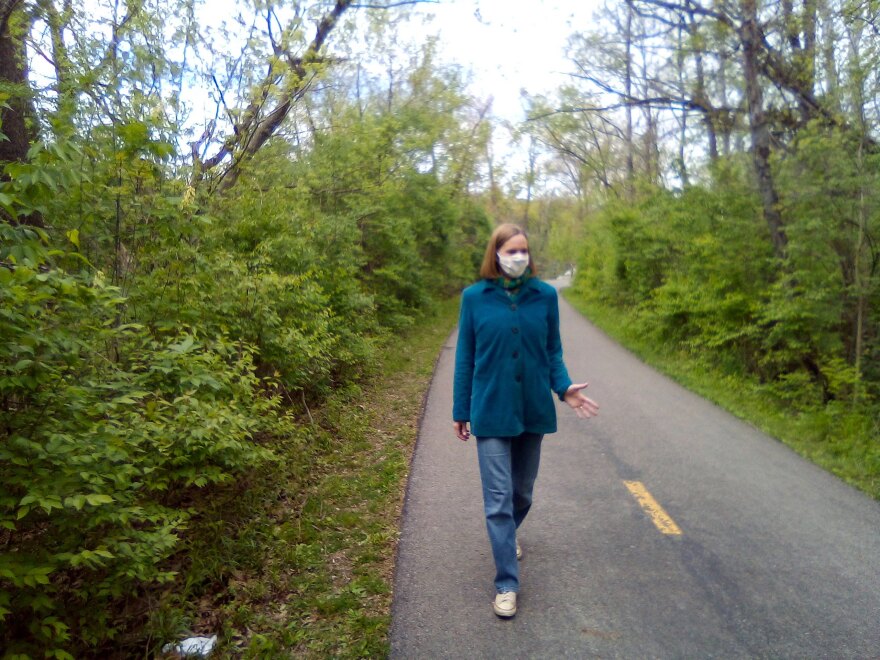Letters From Home is WOSU's new series collecting stories about our day-to-day lives during the coronavirus pandemic. We asked Classical 101 midday host Jennifer Hambrick to weigh in on this week's question: How have you created or maintained meaningful personal relationships?
With going to the gym out of the question, Hambrick's been enjoying long walks, which inspired her to think about connecting with folks from afar. Read Jennifer's story below and check out her "Quarantine Classics" series on Classical 101's Facebook page.
Do The Wave
Since the gyms are closed these days, like many, I’ve hit the streets for recreation in the form of walks around the neighborhood and in other natural settings. But on my first mid-pandemic, socially distanced walks, I made a surprising discovery: The people I said hello to from afar seemed seriously freaked out that I had spoken to them.
Was there fear that my one-word greeting could zing potentially deadly breath droplets in their direction? Was there anxiety that I might misconstrue a response to my transient "hello" as an invitation for emotional intimacy or – worse yet – physical proximity?
Naw, really?
This fear, or at least what seemed to me to be fear, of even the most basic, physically distanced connection between two proverbial ships passing in the night struck me as extremely sad, especially at a time when, more than ever, we are torn apart.
I respect people’s fear during this scary time. But I decided that I had to resist further alienation, to push back against the germy forces that divide and be a force that unites, to be a warrior for community at a time when community looks less and less like togetherness, and more and more like the opening credits of "The Brady Bunch."
My weapon in this campaign? The wave.
Not the stadium wave, which we won’t be doing for a while. I’m talking about the simple hand wave, one way that people in cultures the world over have said "hello" without actually saying hello for a long, long time.
There’s a whole repertoire of waves. There’s the jazz-hand wave: all five digits separated and an enthusiastic swivel of the wrist. There’s the on-your-honor wave: fingers together, hand raised to shoulder height as though you’re swearing to tell the truth, the whole truth and nothing but the truth. There’s the school-bus-stop-sign wave: one hand down at thigh level and lifted out to the side just enough to acknowledge someone’s presence.
I’ve found that the jazz-hand wave works well on video conferences, as a visually animated way to say hello or goodbye while mics are muted, but that it works less well on walks, where it might seem frightening to wavees who want to remain socially distanced. Involving minimal movement, the on-your-honor wave is low-key, but seems stilted and strange in a leisure context.
The school-bus-stop-sign wave is my wave of choice for walks. It’s casual, it acknowledges the other person, it offers no body language implying that I plan to move physically closer.
In short, the school-bus-stop-sign wave says, "we’re in this together." (Where have I heard that before?) It’s a visual cue of humanity and goodwill, a gesture, literally, that my fellow pilgrims can see and take with them on every step of their walk, and on every step through this pandemic.
And hopefully they can also see in my eyes, if not beneath the mask I wear these days, that I’m smiling at them, too.
Use the form below to submit your story, and WOSU may include it in our Letters From Home series.
Try and limit your response to no more than 1,000 words. Your response may be edited for length and clarity.
WOSU brings you Letters from Home in partnership with the Columbus Museum of Art.







